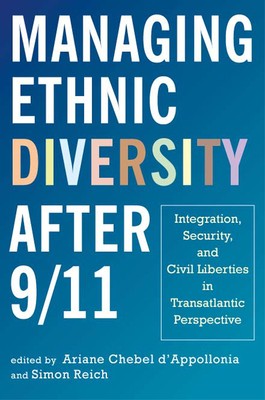
- We will send in 10–14 business days.
- Publisher: Rutgers University Press
- ISBN-10: 0813547164
- ISBN-13: 9780813547169
- Format: 15.6 x 23.4 x 1.9 cm, hardcover
- Language: English
- SAVE -10% with code: EXTRA
Managing Ethnic Diversity after 9/11 (e-book) (used book) | bookbook.eu
Reviews
Description
America's approach to terrorism has focused on traditional national security methods, under the assumption that terrorism's roots are foreign and the solution to greater security lies in conventional practices. Europe offers a different model, with its response to internal terrorism relying on police procedures.
Managing Ethnic Diversity after 9/11 compares these two strategies and considers that both may have engendered greater radicalization--and a greater chance of home-grown terrorism. Essays address how transatlantic countries, including the United Kingdom, the United States, France, Germany, Spain, Italy, and the Netherlands have integrated ethnic minorities, especially Arabs and Muslims, since 9/11. Discussing the "securitization of integration," contributors argue that the neglect of civil integration has challenged the rights of these minorities and has made greater security more remote.EXTRA 10 % discount with code: EXTRA
The promotion ends in 17d.01:28:52
The discount code is valid when purchasing from 10 €. Discounts do not stack.
- Publisher: Rutgers University Press
- ISBN-10: 0813547164
- ISBN-13: 9780813547169
- Format: 15.6 x 23.4 x 1.9 cm, hardcover
- Language: English English
America's approach to terrorism has focused on traditional national security methods, under the assumption that terrorism's roots are foreign and the solution to greater security lies in conventional practices. Europe offers a different model, with its response to internal terrorism relying on police procedures.
Managing Ethnic Diversity after 9/11 compares these two strategies and considers that both may have engendered greater radicalization--and a greater chance of home-grown terrorism. Essays address how transatlantic countries, including the United Kingdom, the United States, France, Germany, Spain, Italy, and the Netherlands have integrated ethnic minorities, especially Arabs and Muslims, since 9/11. Discussing the "securitization of integration," contributors argue that the neglect of civil integration has challenged the rights of these minorities and has made greater security more remote.

Reviews